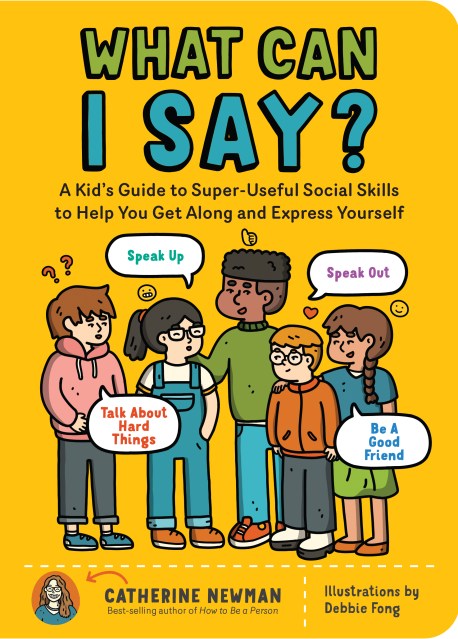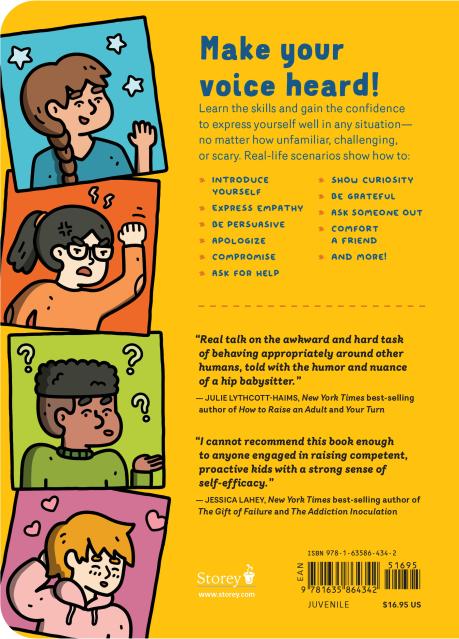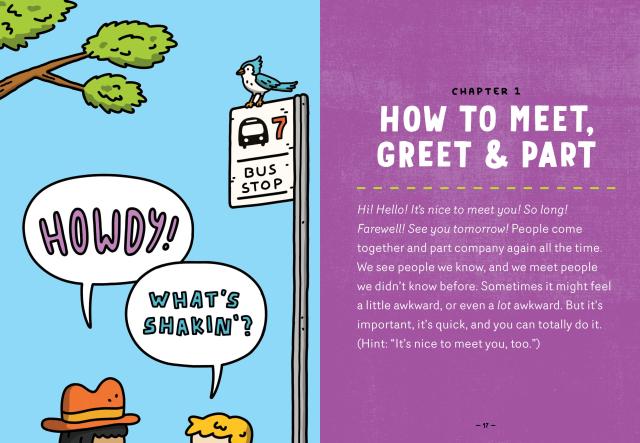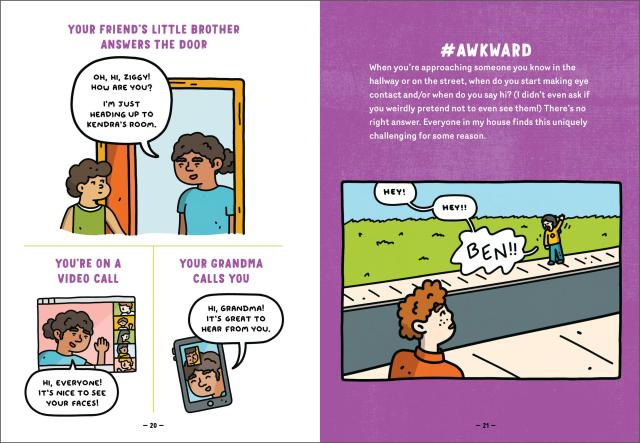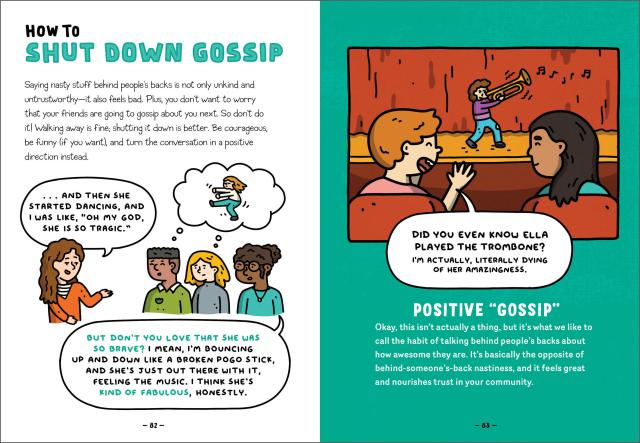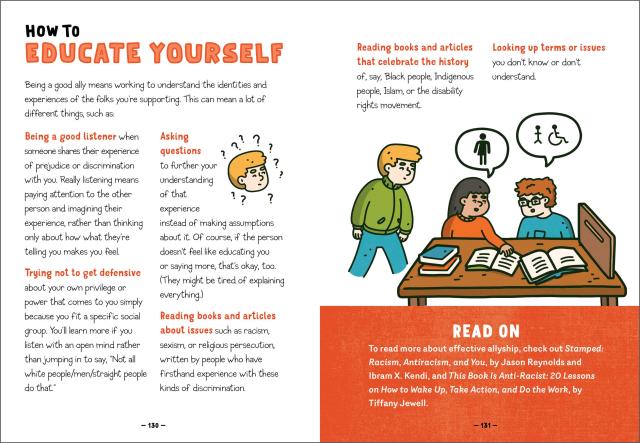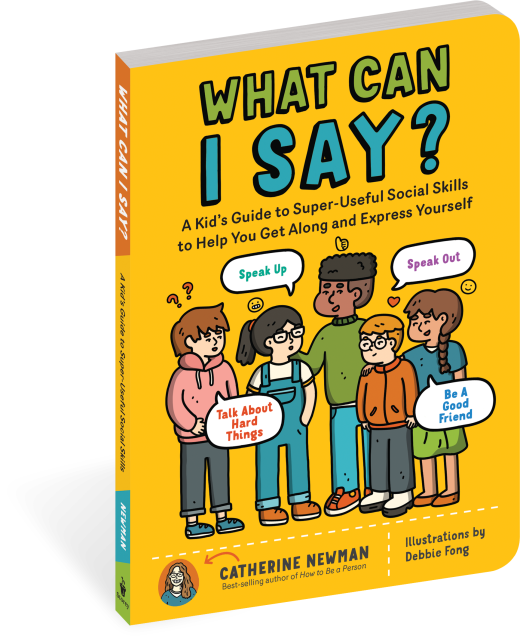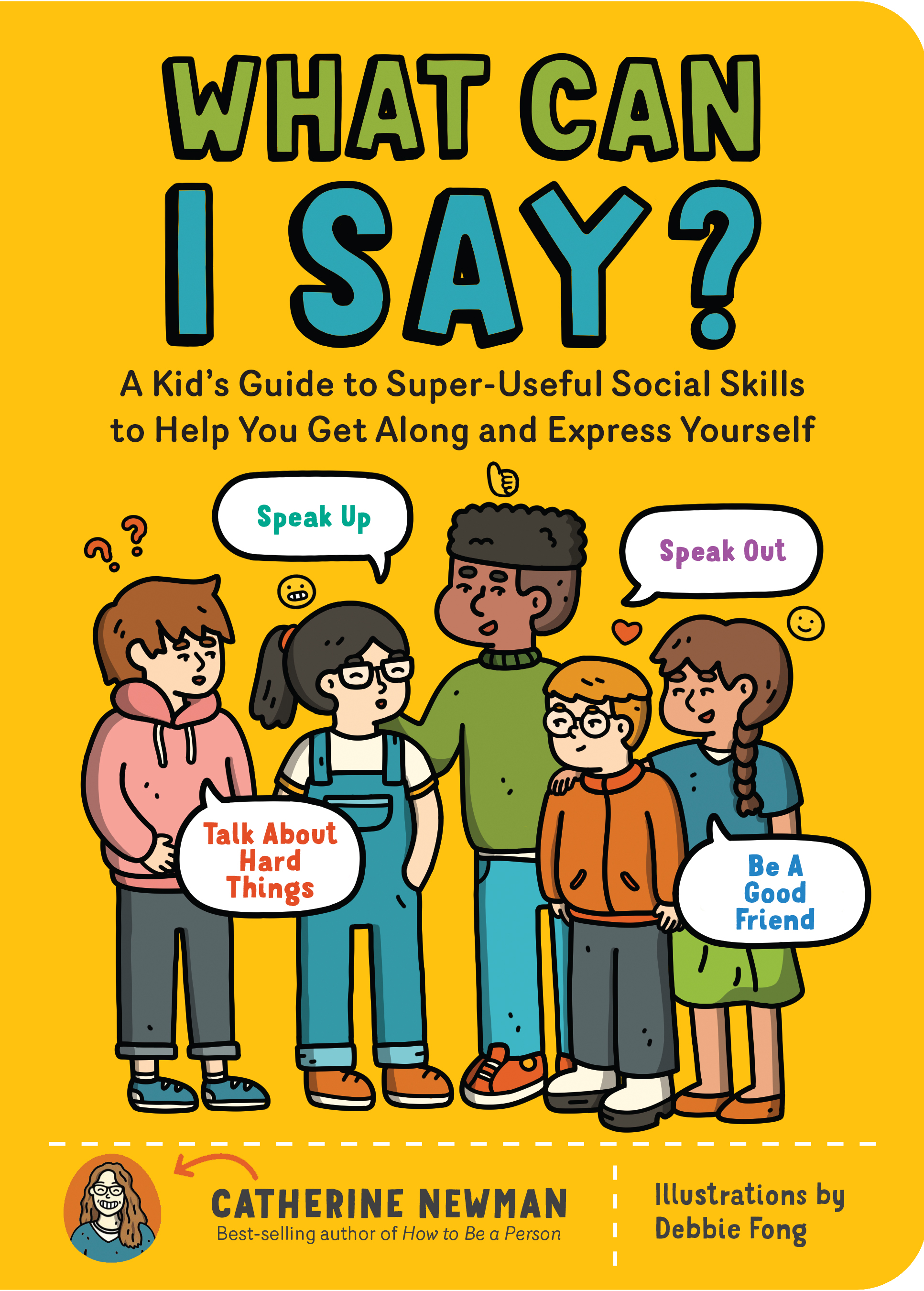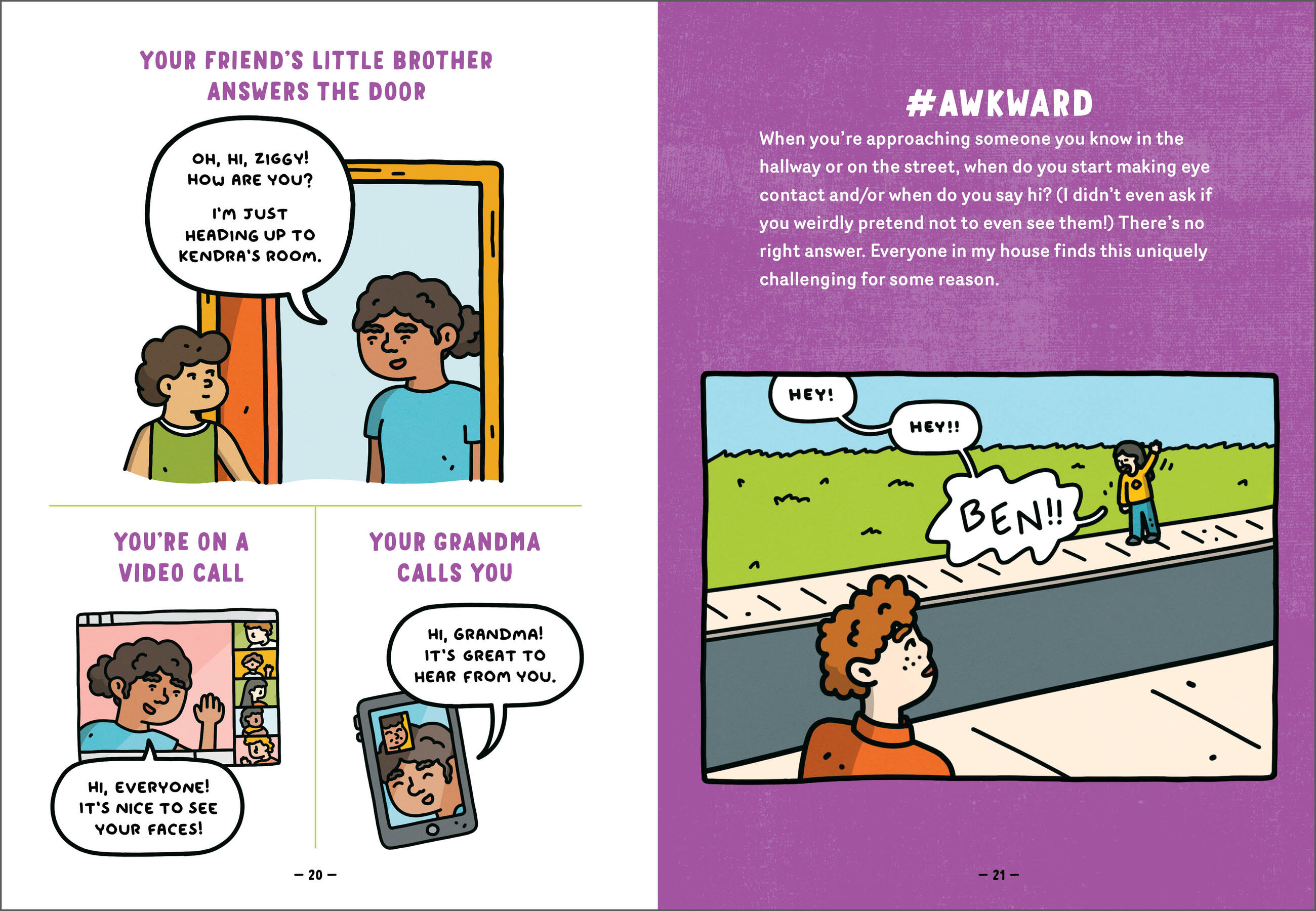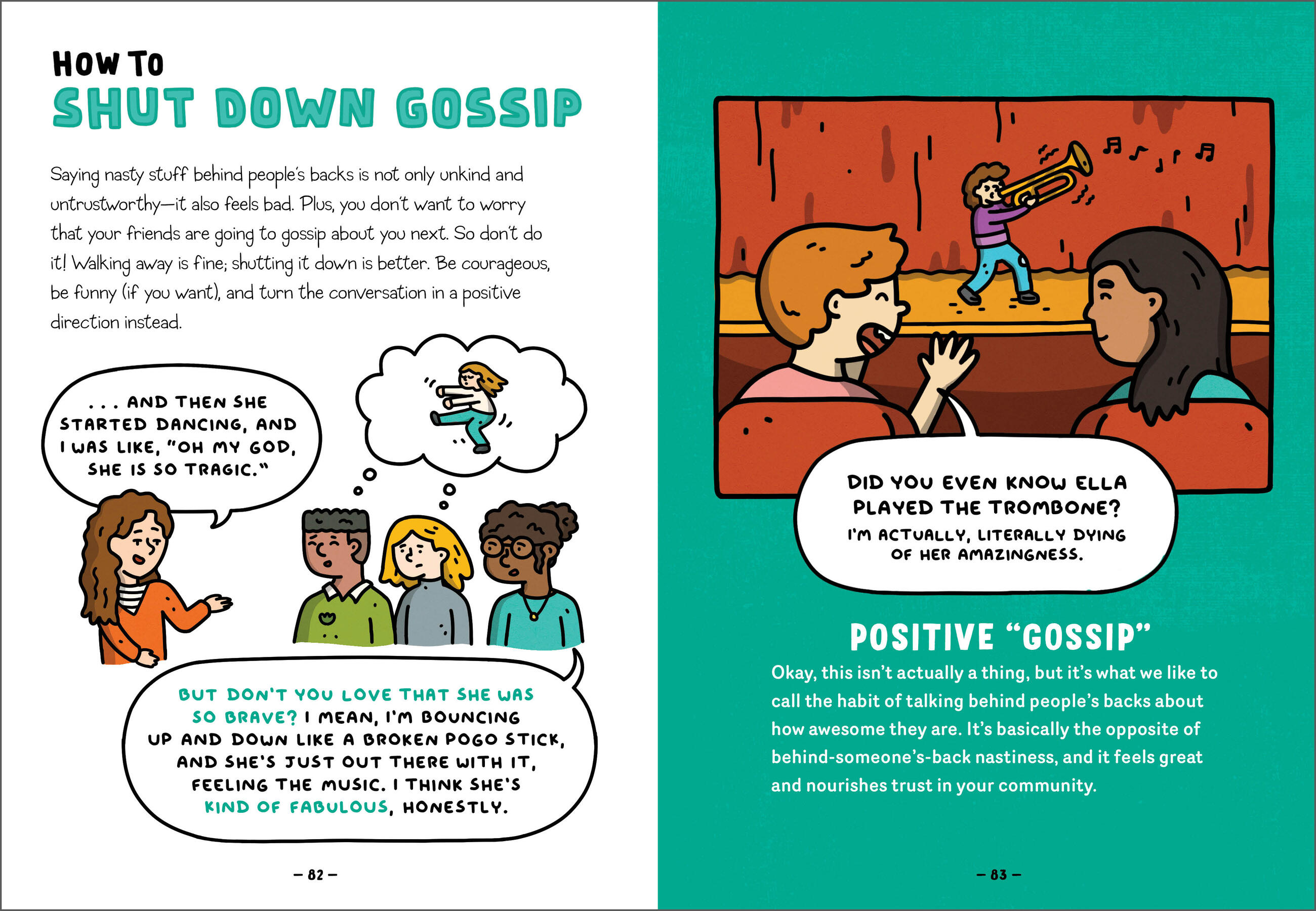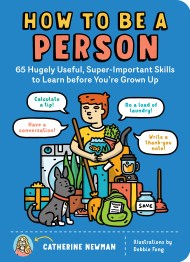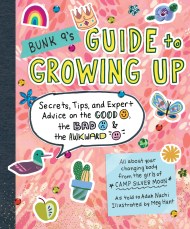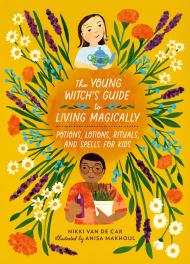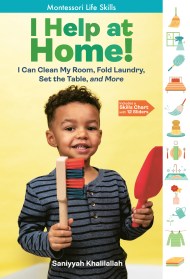By clicking “Accept,” you agree to the use of cookies and similar technologies on your device as set forth in our Cookie Policy and our Privacy Policy. Please note that certain cookies are essential for this website to function properly and do not require user consent to be deployed.
What Can I Say?
A Kid's Guide to Super-Useful Social Skills to Help You Get Along and Express Yourself; Speak Up, Speak Out, Talk about Hard Things, and Be a Good Friend
Contributors
Formats and Prices
Price
$16.95Price
$22.95 CADFormat
Format:
- Trade Paperback $16.95 $22.95 CAD
- ebook $11.99 $15.99 CAD
This item is a preorder. Your payment method will be charged immediately, and the product is expected to ship on or around May 24, 2022. This date is subject to change due to shipping delays beyond our control.
Also available from:
-
"A primer for tweens on healthy communication and boundaries, how to be an ally, how to care for your community — basically, as Newman spells out in her introduction, “how to talk to the other people in your life.” Newman’s writing is kind and inclusive. Fong’s art is friendly and funny, depicting a diverse cast of young characters (of different races, genders, abilities) as they negotiate various social scenarios." — The New York Times Book Review
“One of the most important things adults can teach children is the skill of communication and self-advocacy. What Can I Say? can not only teach children to be more confident, eloquent, and clear, it can save them from harm and give them the tools and courage they need to ask for help. I cannot recommend this book enough to anyone engaged in raising competent, proactive kids with a strong sense of self-efficacy.” — Jessica Lahey, author of The Gift of Failure and The Addiction Inoculation
"Newman is out with another totally gorgeous guide for kids about how to succeed in the world. This time, it’s real-talk on the awkward and hard task of behaving appropriately around other humans, told with the humor and nuance of a hip babysitter. This book is to GenZ what Free To Be You And Me was to GenX. You’ll find yourself wishing you’d had it years ago!" — Julie Lythcott-Haims, New York Times bestselling author of How to Raise an Adult and Your Turn
"What a glorious book. What Can I Say? is much-needed in this era of increased social awkwardness and conflict. Catherine Newman and illustrator Debbie Fong have created a delightfully illustrated, inclusive guide to help kids evaluate their behavior, tune into their feelings, and figure out how to start a conversation, be a good listener, and interact in simple and emotionally charged situations, with kids and adults, and in person or digitally. If I had this book as a young person, I no doubt would have handled countless relationships in a more loving and compassionate manner." — Christine Koh, co-author of Minimalist Parenting and co-host of the EditYour Life podcast
"Catherine Newman is my go-to for etiquette advice, both for me and my kids, who are 4 and 11. She has the touch: compassion for awkward and uncomfortable situations, like stepping away from a friendship or comforting someone, and our complicated feelings about them. Plus, she gets how much harder these are for young people. This book, full of fabulous illustrations, "Nerd Facts," pop quizzes, and examples of how to do things the right way ("Nailing It") and the wrong way ("Not Nailing It," "Also Not Nailing It") will make kids laugh, which is the best way to make them pay attention. It's an accessible primer on how to be more loving, inclusive, self-confident, and, indeed, a better human." — Jenny Pritchett, better known as Jenny True, "Dear Jenny" columnist on Romper and author of You Look Tired: An Excruciatingly Honest Guide to New Parenthood
“A book that’s not just for kids! What Can I Say? offers clear, practical, and reassuring guidance to children and adolescents about communicating with others in all kinds of situations. From texting and emailing to conversations with an older adult or an intimate partner, the tips in this book are thoughtful, straightforward, and inclusive to young people and their families, broadly defined. As a mother, psychologist, and professor, I’d like to see this as required reading for all young people and those who love them. In a world where the art of communication is far too often neglected, What can I say reminds us how much interacting in a healthy way with those around us enriches our lives. From compromise to gratitude to forgiveness to compassion, Catherine Newman reminds youth and the adults who care about them the importance of humanity in communication.” — Abigail Gewirtz, Ph.D., L.P, author of When the World Feels Like a Scary Place, and Editor-in-Chief, International Journal of Psychology
- On Sale
- May 24, 2022
- Page Count
- 160 pages
- Publisher
- Storey
- ISBN-13
- 9781635864342
Newsletter Signup
By clicking ‘Sign Up,’ I acknowledge that I have read and agree to Hachette Book Group’s Privacy Policy and Terms of Use
